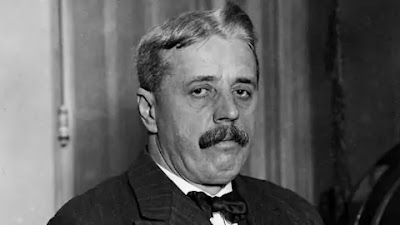Also Read
The novel established itself as the most important literary type in the twentieth century. Many experiments and efforts have been made in this regard. The novels of Arnold Bennett however followed the traditional pattern of the Victorian fiction. They have suffered considerable reduction in reputation in the second half of the twentieth century. Critics label them "middle brows" and Virginia Woolf calls him "materialists". Bennett did not break any new paths and his appeal is largely to the more sensitive members of the middle class. However, a close study of his novels reveals their power and insight as novelists.
Arnold Bennett wrote more than eighty volumes of novels, short stories, essays, articles and plays. All of them are not of equal importance and the fame of Arnold Bennett rests primarily on The Old Wives Tale (1908), Clayhanger (1910), Hilda Lessways (1911), These Tuain (1916). Among his less important works mention may be made of Buried Alive (1908), The Card (1911) and The Grand Babylon Hotel, and entertaining and delightful extravaganza.
Arnold Bennett as a Novelist
Bennett's novels aim at appreciating life, particularly of the Five. Towns in a naturalistic style without an attempt to moralise or philosophise about that life. Faithful realism and an unfailing interest in human life characterise the novels of Bennett. The Old Wives Tale is a long panorama of the lives of two sisters who were reduced from the charm of youth to the declining fortunes of old age and death. The novel combines humour and tragedy, pathos and indignity, beauty and ugliness. In the Clayhanger Trilogy - Clayhanger, Hilda Lessways, These Twain are less ambitious in design and less majestic in theme but they show integrity of vision and fine craftsmanship.
Arnold Bennett used the novels to paint the realistic picture of the people and the industrial conditions of the Five Towns. The Victorian novel, in serial parts, was liable to diffusion and shapelessness but Bennett's ideal was the naturalistic novel presenting people and things as true to life as possible in a style to match the whole story shaped and controlled by intellectual intention. He records with impartiality and detachment the people, the habits, the industrial progress of the Five Towns. Henry James and Arnold Bennett are poles apart as artists. James's novels present a close-knit structure in which the psychological problems in the relationship between a small group of characters is delineated. But Bennett belongs to the school of naturalists taking delight in the presentation of details. He admired and imitated Maupassant, Flaubert and Balzac, the French naturalists but he did not portray people as conditioned by heredity and environment like the French naturalists. Minute details in the descriptions of people and things are what Bennett sought.
